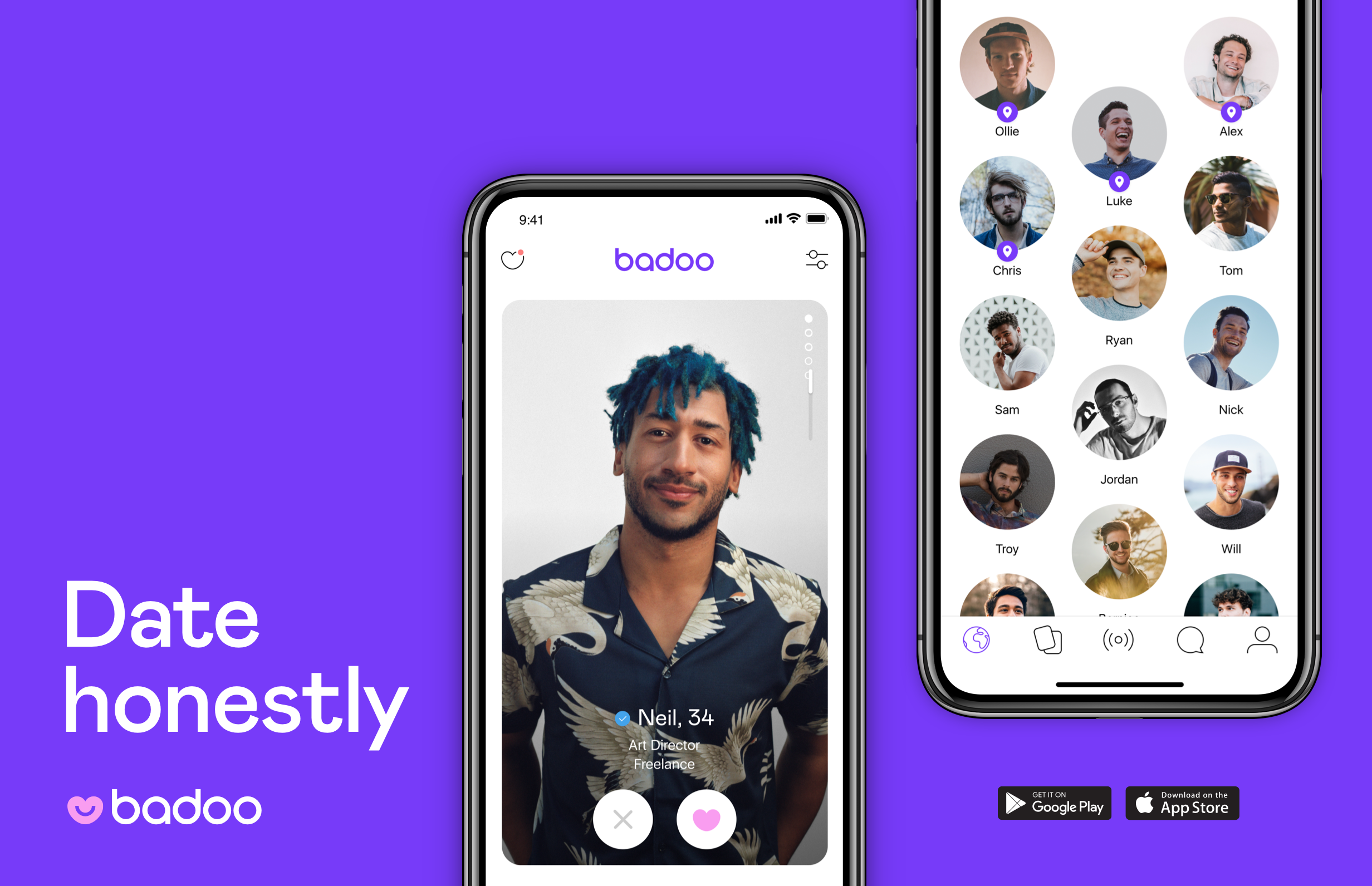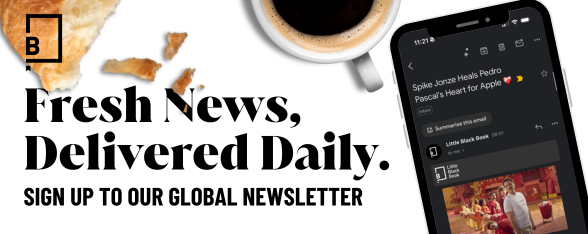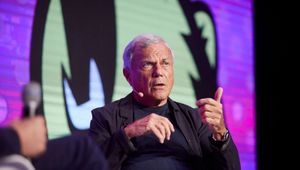
Badoo Shows Honesty Is the Best Policy When It Comes to Dating Apps

Naysayers may moan and groan about the unavoidable and inexorable rise of online dating – and if you’re single in 2019, it really does feel unavoidable – but matchmaking using algorithms and digital technology has a surprisingly long history. In 1959, Stanford students Philip A. Fialer and James Harvey matched 49 couples using the university’s IBM 650 computer – the Stanford magazine describes the project as ‘punch-card love’. Sadly, no lasting relationships resulted from the experiment – but the past 60 years has seen digital dating proliferate, accelerating in the mid-2000s and becoming ubiquitous in the 2010s.
These days, there’s an array of apps and platforms to choose from – and each brand is working harder to differentiate itself in terms of features, community, and brand. There’s the casual swiping of Tinder, the earnest mature daters getting stuck into over-involved questionnaires on eHarmony, the early(ish) adopting urbanites on Hinge and so on.
Enter Badoo, a dating platform that’s been around since 2006 and which boasts one of the largest communities around (434 million registered users and 60 million monthly active users). They’ve recently launched a brand refresh and international campaign aimed at defining the platform’s pitch to daters.
“I’ve spent time building brands for other technology companies and in no space does brand become more important than the world of consumer social products,” says CMO Dominic Gallello. “The reason for that is that I believe brands represent values, fundamental values that you uphold that you champion, that people buy into and become a part of. Really when we’re talking about a product like Badoo we’re not talking about the bells and whistles, we’re not talking about features. We’re talking about how people interact with each other, so it’s important that we as a brand make our values known so what we can help engender the best values by which people can come together, form connections and ultimately form relationships.”
The campaign messaging, which features real users and handwritten quotes drawn from in-depth interviews, is clear: it’s a platform that encourages honesty and openness and a community full of normal people, just like you.
Annnnnnd… the timing’s not great. Just as the team prepares to launch a campaign that’s all about honesty, a scandal erupts as a Forbes feature reveals multiple employee complaints of a sexist and sexualised culture at the London HQ, notorious for its wild parties. The revelations follow an HMRC investigation last year into tax irregularities. There’s no avoiding the irony in the new brand strategy.
It’s a tough sell for Dominic, who joined Badoo at the beginning of the year. So will the higher ups and Badoo and parent company Magic Lab be internalising those values espoused in the new campaign? The brand hopes that a recently announced investigation will go some way towards that.
“I think we take it very seriously,” says Dominic. “Badoo is part of Magic Lab and is a core part of the portfolio of brands. Magic Lab has values that they draw from each of their subsidiary brands and I think that the investigation that Andre [Andreev, Badoo founder] has announced is a core piece of this, so that we can really get a true reflection of what’s taken place.”
In the meantime, though, honesty and openness were values that Dominic and his team identified among the user base, and that helped lead them to the ‘Date Honestly’ platform.
“The question becomes why are those everyday people being successful on Badoo, rather than anywhere else? One is the honesty that we see in our profiles and our bios and second is in the messaging behaviour we see on our platform. Badoo sends more messages than almost any other competitors out there per user. It’s a combination of these two things where people are expressing who they are and what they’re really looking for and being open and honest with their identity and intentions.”
Dominic talks extensively and enthusiastically about the research he carried out with ‘top users’ who were recruited for the campaign. He identifies the large user base as ‘everyday people’ – approachable and authentic rather than the aloof and artificial air of rival platforms’ communities. Badoo, he argues, is all about ‘combatting the image economy’.
“There’s an undercurrent of a cultural shift in how we are communicating online and I believe honesty helps summarise that in a way that people can grab onto. If I think about the enormous and explosive rise - and now realisation of - the way that Instagram culture and this world of constantly consuming other peoples’ projections has mental health implications, people understand that they have to be more authentic in their expression and more responsible in their expression,” he says.
The campaign launched in the UK, Spain, Brazil and Russia – key markets for the platform. In each market, the execution has been tweaked to accurately reflect the nuances of the dating community in each market. Not that it falls into stereotype – the users recruited in Russia embraced the opportunity to show off their goofy side, while the UK users were surprisingly open. Dominic conducted many of the UK interviews himself, a crash course in getting to know the user base after only a couple of months in the job. He was moved as interviewees opened up about their hopes, and wishes, and even experiences with mental health difficulties.
“You can only imagine what making eye contact with 16 strangers does to you over time,” he says. “When you sit across from these people that I would never have been able to meet and probably never would have talked to in the street and you realise the commonality of experience that you all have and the shared aspirations you have to find connection regardless of whatever stage you are in life is a really profound moment.”
Coinciding with that campaign and the brand refresh (the heart is now pink and smiley), the team has also been tweaking the platform to encourage more open and authentic interactions. These include testing a range of ice-breaker suggestions (the most responded-to is currently is ‘tell me, has a stranger ever changed your life?’) and encouraging users to commit to an honesty pledge when they sign up. In future, Dominic sees that the brand will start to explore areas like self-doubt and mental health and there are more functionality tweaks in the works.
Of course, ultimately, the next step for Badoo in its ‘Date Honestly’ platform is to make sure that the messaging and the prompts to authenticity and integrity targeted at users is matched, if not superseded, by internal company culture.















